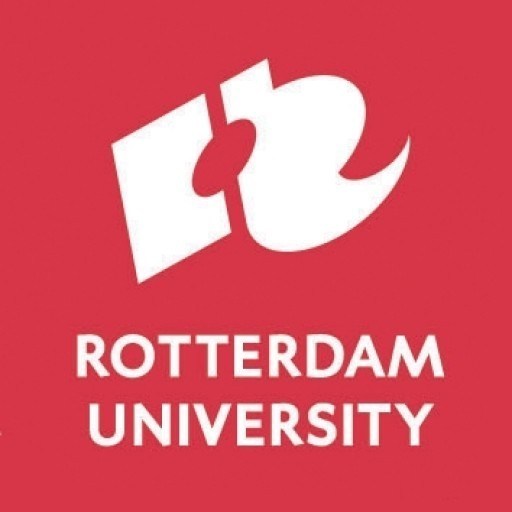Design, create, and interpret visual stories across multiple platforms with the Bachelor’s programme in Arts and Design. This undergraduate programme at Rotterdam University of Applied Sciences equips students with essential skills in graphic design, visual communication, and creative problem-solving. Throughout the four-year course, students engage in hands-on projects, workshops, and collaborations that foster innovation and artistic expression. The curriculum emphasizes a multidisciplinary approach, blending traditional design techniques with emerging digital technologies to prepare graduates for dynamic careers in the arts and design industry. Students learn to develop their unique artistic voice, conceptualize ideas, and utilize various media such as print, digital, and interactive formats to communicate effectively. The programme encourages critical thinking about visual culture and societal issues, enabling students to create meaningful and impactful work. They also acquire practical skills in project management, client interaction, and presentation, ensuring they are ready to thrive in a competitive professional environment. Throughout their studies, students have access to state-of-the-art facilities, including digital studios, print workshops, and exhibition spaces, fostering a creative community dedicated to artistic excellence. The programme prepares graduates for a wide range of careers in graphic design, advertising, branding, illustration, and multimedia production, among others. With a strong focus on innovation, sustainability, and social responsibility, the Arts and Design programme at Rotterdam University of Applied Sciences empowers students to become reflective practitioners capable of contributing to visual culture and society at large.
The Bachelor's program in Education in Arts at Rotterdam University of Applied Sciences offers a comprehensive and innovative curriculum designed to prepare students as creative and competent professionals in the field of arts education. This program emphasizes the development of practical skills, theoretical knowledge, and a reflective attitude necessary for inspiring and guiding learners in diverse artistic disciplines. Throughout the program, students engage in a dynamic blend of coursework, workshops, and hands-on projects that foster their understanding of pedagogical principles, artistic techniques, and educational strategies.
The curriculum covers core topics such as art theory, visual arts, performance arts, and the psychological aspects of learning and development. Students learn to design and implement engaging arts education programs tailored to various age groups and settings, including primary and secondary education, community projects, and cultural institutions. Special emphasis is placed on innovative teaching methods, digital tools, and intercultural competence to ensure graduates are well-equipped to adapt to the evolving demands of arts education in a globalized context.
In addition to theoretical modules, the program offers practical placements and internships within arts organizations, schools, and community centers. These real-world experiences enable students to apply their acquired knowledge, develop their pedagogical skills, and build professional networks. The program also encourages a reflective approach, prompting students to continually evaluate their teaching practices, artistic expressions, and interactions with diverse audiences.
Graduates of this program are prepared for careers as arts teachers, community arts coordinators, cultural project managers, and other roles within educational and cultural sectors. They are equipped not only with pedagogical expertise but also with a deep appreciation for the transformative power of arts in society. The program fosters an inclusive, innovative, and entrepreneurial mindset, empowering students to contribute meaningfully to the arts education field and to pursue lifelong learning and professional development.
Program requirements for the Bachelor of Arts in Education at Rotterdam University of Applied Sciences typically include a completed secondary education diploma equivalent to the Dutch HAVO or VWO level, demonstrating adequate proficiency in English (such as IELTS score of 6.0 or TOEFL iBT of 80). Applicants may be required to submit a motivational letter outlining their interest in arts education and relevant experiences, along with a curriculum vitae highlighting prior engagement with arts and pedagogical activities. Some programs may also request a portfolio showcasing creative work or projects that reflect the applicant’s artistic and pedagogical skills. Candidates might need to attend an interview or an assessment day to evaluate their motivation, communication skills, and suitability for the program. Prior experience in arts-related disciplines or teaching is advantageous but not compulsory. Admissions are often based on a holistic review process considering academic records, motivation, and relevant extracurricular activities. International applicants should provide certified translations of their diplomas and may need to meet additional visa and residence requirements. The program emphasizes practical learning, requiring students to complete internships or fieldwork placements in educational or arts settings, which are essential components of the curriculum. Applicants should demonstrate a genuine interest in developing skills to teach and promote arts education in diverse contexts. Language proficiency must be demonstrated through recognized tests, and some special provisions may be available for applicants from certain countries. Overall, candidates should show a dedication to arts, creativity, and educational development, aligning with the university’s focus on applied sciences and practical training.
The financing of the Education in Arts program at Rotterdam University of Applied Sciences is primarily supported through a combination of government funding, student tuition fees, and additional financial aid options. As a government-funded institution, the university benefits from national and regional subsidies aimed at promoting vocational and professional education in the arts. Tuition fees for international students are set according to the university’s fee structure, which may vary depending on the student’s residency status and specific program regulations; these fees are outlined annually on the university’s official website and are subject to governmental adjustments.
Students are encouraged to explore various financial support mechanisms, including Dutch student grants and loans, provided by the Dutch government through entities such as DUO (Dienst Uitvoering Onderwijs). These financial aids are available for eligible students pursuing higher education in the Netherlands, and they help offset the cost of tuition fees as well as living expenses. International students may also seek scholarships and grants offered by the university or external organizations, which are competitive and based on academic achievement, financial need, or specific criteria related to the arts discipline.
The university promotes affordability and access to education through its flexible payment plans and financial counseling services. Some students may also opt for part-time employment opportunities in and around Rotterdam, which can supplement their income and help finance their studies. Furthermore, Erasmus+ and other European Union programs occasionally provide funding opportunities for students in arts-related programs, encouraging international mobility and exchange.
Overall, the financial landscape for the Education in Arts program at Rotterdam University of Applied Sciences is designed to support students financially through a combination of institutional funding, governmental assistance, scholarships, and employment avenues, ensuring that talented individuals can pursue their artistic and educational ambitions without undue financial hardship.
The Bachelor's degree program in Education in Arts at Rotterdam University of Applied Sciences is designed to prepare students for a dynamic career in arts education, encompassing a variety of artistic disciplines. The program emphasizes practical skills, theoretical knowledge, and pedagogical strategies necessary for effectively teaching arts in diverse educational settings. Students are introduced to a broad spectrum of artistic fields such as visual arts, dance, music, and drama, enabling them to develop a versatile skill set that can be applied in schools, cultural institutions, community projects, and other educational environments.
Throughout the program, students engage in both theoretical coursework and hands-on practice, ensuring they acquire a comprehensive understanding of arts education principles. The curriculum covers topics including artistic development, curriculum design, didactics, and learner-centered teaching methods. In addition to subject-specific training, the program emphasizes the importance of cultural awareness, inclusivity, and innovation in arts education to prepare graduates to meet the needs of a diverse student population.
Internships and practical projects are integral components of the program, providing students with real-world experience and professional networking opportunities. These experiential learning components help students build confidence, refine their teaching techniques, and understand the operational aspects of arts education environments. The program also encourages interdisciplinary collaboration, allowing students to work with peers from other fields, fostering creativity and collaborative problem-solving skills.
Graduates of the program are equipped to pursue careers as arts teachers at various educational levels, arts coordinators, community arts facilitators, or pursue further specialization through postgraduate studies. The program aims to foster not only professional competence but also personal growth by nurturing creativity, critical thinking, and a lifelong passion for arts education. With a strong foundation in both artistic practice and pedagogical theory, graduates are well-prepared to contribute to the development of arts education in their communities and beyond, making meaningful impacts in the cultural and educational sectors.







